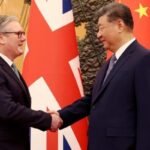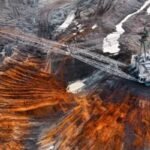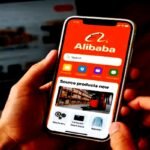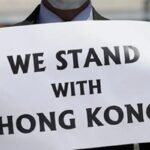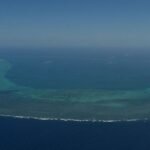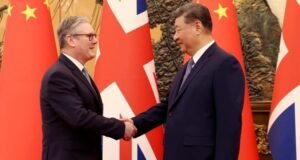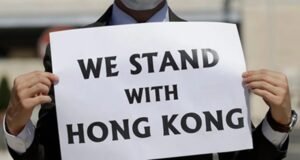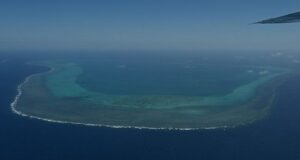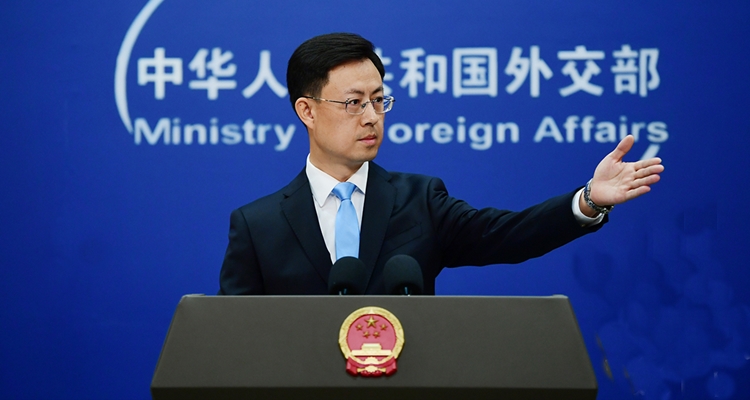
The difference is that the United States has good reason for its sanctions. The U.S. sanctions at least nominally punish Hong Kong officials who have actively participated in the repression of Hongkongers.
The U.S.-sanctioned officials included “Hong Kong Secretary for Justice Paul Lam; then-police commissioner Raymond Siu; and Dong Jingwei, a Beijing official overseeing the city’s national security affairs” (Hong Kong Free Press, April 22, 2025).
Guo Jiakun
Ministry of Foreign Affairs spokesman Guo Jiakun twittered: “In response to the U.S.’s illegal unilateral sanctions against Chinese officials in Hong Kong, China decided to impose sanction on the U.S. congress members, government officials and heads of NGOs who acted egregiously on #HongKong-related issues.”
At a press conference, Guo (shown above) called the U.S. sanctions “unlawful, unilateral, and indiscriminate.”
He did not explain which U.S. law the U.S. sanctions allegedly violate.
If “unilateral” means that the sanctions were imposed without the Chinese Communist Party’s prior agreement and approval, this is true enough, just as it is true that any criminal might lament lack of veto power over his conviction and penalty.
The U.S. sanctions would have been “indiscriminate” if, say, they had been imposed on random passersby in Hong Kong. But they were imposed on officials actively enforcing the repressive National Security Laws and engaging in transnational repression. The only reasonable objections might be that too few culpable officials were sanctioned and that the sanctions don’t go far enough.
The sanctions
On March 31, 2025, the U.S. State Department announced that the United States was sanctioning “Six Individuals for Undermining Hong Kong’s Autonomy.”
Beijing and Hong Kong officials have used Hong Kong national security laws extraterritorially to intimidate, silence, and harass 19 pro-democracy activists who were forced to flee overseas, including a U.S. citizen and four other U.S. residents. Today, the Department published the latest Hong Kong Policy Act report, and the Secretary certified that Hong Kong does not warrant differential treatment under U.S. laws as it did before its July 1997 handover. In addition, the United States is sanctioning six individuals who have engaged in actions or policies that threaten to further erode the autonomy of Hong Kong in contravention of China’s commitments, and in connection with acts of transnational repression.
The sanctions block “all property and interests” of the sanctioned officials “that are in the United States or in possession or control of U.S. persons” and prohibit U.S. persons from engaging in economic transactions with these officials.
As for China’s retaliatory sanctions, Guo does not seem to have described them in detail, but he says that they will be “resolute and reciprocal.”
Also see:
U.S. Department of State: 2025 Hong Kong Policy Act Report
